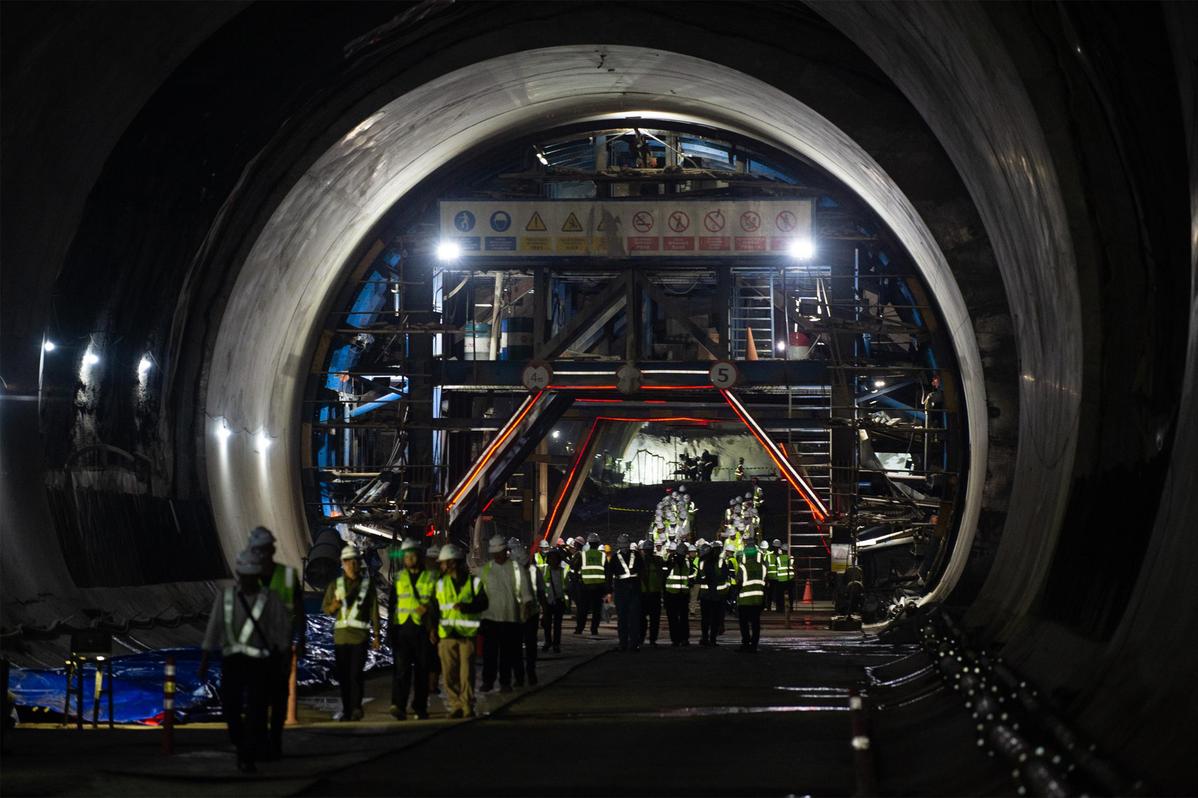Rail project broadens horizons in Indonesia


In April, Tinambunan, among others, was presented a 2018 Excellent Indonesian Staff award by China Railway Group for his hard work. It was a surprise, he said, adding that it will encourage him to put even more passion into his work.
Zhang Wei, general manager of the Jakarta-Bandung HSR project, said the rail link will create more job opportunities and promote Indonesia's economic development.
Currently, in addition to some 500 Chinese staff, about 2,000 Indonesian employees have been recruited for the HSR project, including frontline workers, technicians and administrative staff. As the project reaches peak construction phase, he expects the number to grow to more than 3,000.
"We are willing to accept any Indonesian who wishes to work with us, especially villagers who live nearby the construction sites, as long as they have the skills. Even if they don't (have the skills), we can provide training or assign them to posts like security or cleaning," said Zhang, adding that the project can make key contributions to regional development.
"We also try to purchase as much as materials and equipment locally, as long as it is available in Indonesia and meet our standards."
Besides honing the skills of future engineers like Tinambunan, the railway group also established training centers for staff at the construction sites. Most of the instructors are HSR experts or experienced engineers from China.
"In the short term, training these staff can help improve the construction efficiency, and improve the quality of skilled workers in Indonesia," said Zhang. "In the long run, this can help deepen the mutual understanding between the people from both countries."
For each worker trained, Zhang signs a certificate for them. "We want to impart professional skills, while enhancing their sense of belonging to the project... and show them that Chinese people are conscientious about what we do," he said.
Hoping to train 2,000 people in 2019, he also plans to select some outstanding Indonesian employees from the training centers to sponsor them to go to China for short-term training in HSR.
At China Railway Group, Chinese and Indonesian employees live together in workers' camps, with dormitories and canteens close by. Separate halal canteens and prayer rooms have been designed for Muslim workers.
Indonesia is the world's biggest Muslim-majority country, and more than 87 percent of its 260 million people are Muslims, according to the World Population Review.
"It is important that we fully respect Indonesian people's religion and culture," said Zhang. "Though we may have different religions, our friendship can still be deepened through cultural exchanges and communication."


















